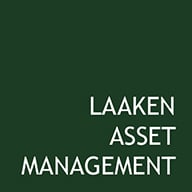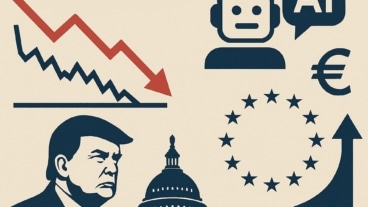July 4, 2025

"England would therefore find it her interest to import wine, and to purchase it by the exportation of cloth."
- David Ricado, explanation of his theory of international trade in 1817 from Principles of Political EconomyThe financial markets remained volatile throughout the second quarter, driven by geopolitical tensions and economic uncertainties. Despite this, the MSCI All Country World Index (ACWI) gained 1.9% (in EUR), while European bonds yielded 1.4%. Our portfolios slightly underweighted equities and overweighted bonds. This outlook covers key developments shaping our investment strategy.
Rising trade tensions: the U.S. sets the stage
At the start of the quarter, the U.S. government introduced broad 10% import tariffs, with additional measures linked to individual countries’ trade surpluses with the U.S. These tariffs were more severe than markets anticipated, triggering significant initial volatility. However, markets recovered quickly after most of the highest tariffs were postponed, paving the way for elaborate negotiations toward new trade agreements with various countries.; a large task at hand
Given it has the largest consumer market in the world combined with a relatively closed economy, the U.S. maintains strong negotiating leverage. Trade tensions escalated sharply with China, including threats of tariffs exceeding 100%. While these drastic measures were postponed after negotiations, underlying tensions persist. The U.S. holds technological dominance, whereas China remains crucial in supplying rare earth metals.
Our view: persistent uncertainty around trade and geopolitics is expected to prompt businesses to delay investments, dampening global economic growth.
United States: Strong consumers despite growing pressures
The U.S. economy remains resilient, with recession fears receding. The labour market is gradually cooling; unemployment is rising slightly yet remains historically low. Consumer spending remains robust: This in confirmed by the companies in our portfolio: Visa and American Express report consistent spending with no signs of consumer debt issues and Booking.com anticipates continued revenue growth.
Although overall consumer confidence remains low, spending behaviour remains solid.
Concerns over government finances persist, particularly following the recently proposed “One Big Beautiful Bill,” which lacks fiscal discipline. President Trump pushes for interest rate cuts to alleviate growing debt-service costs that could soon exceed defence spending. Nevertheless, the debt level remains sustainable as long as inflation eventually reduces the debt-to-GDP ratio and because federal spending is a relatively low part of total GDP.
Positive signals: Fund managers’ allocations to the U.S. dollar are at a 20-year low, suggesting significant negative news may already be priced in. Meanwhile, earnings expectations remain solid, and international cash flows converted into USD could positively surprise.
Artificial intelligence: From hype to growth engine
Initially sceptical about the AI business model (profitability), we now see tangible results. Major tech firms continue substantial investments in AI infrastructure and applications, even amid broader economic uncertainty:
- TSMC, the dominant AI-chip producer, reported year-over-year revenue growth of 40% in May.
- Broadcom noted accelerating demand for AI processing capacity.
- Alphabet integrates AI across Search, Maps, and Android.
- Microsoft sees demand for AI services outstripping its data center capacity.
- Meta observes improved ad performance due to AI.
AI is now firmly a structural growth trend, akin to the cloud-computing boom that began around 2010 and lasted over a decade. We are in year three of this investment cycle.
Europe: Ambitious plans, but funding is unclear
Declining confidence in the U.S. is creating room for increased European collaboration. The EU unveiled ambitious investment plans, though funding remains uncertain. Many European countries already face significant debt burdens, but Germany notably retains fiscal room for additional investments.
China: Struggling to recover
China attempts economic stimulus through government spending and subsidies, but underlying issues persist: real estate pressures, ongoing deflation, and high youth unemployment. Despite a modest uptick in market sentiment, a convincing recovery remains elusive.
Interest rates and inflation: ECB eases, U.S. waits
The European Central Bank (ECB) signals potential rate cuts as core inflation declines to 2.3%. In contrast, the U.S., with inflation at 2.8%, maintains a cautious stance. U.S. tariffs may contribute to inflation domestically but could have deflationary effects in Europe.
Portfolio positioning
Equities: Within equities, we reduced positions in LVMH and alternative asset managers. Increased holdings in Novo Nordisk and TSMC during recent price corrections. Retained our gold position as protection against geopolitical risks and inflation.
Fixed Income and Cash: Given lower short-term rates and a steepening European yield curve, we are swapping short term bonds for longer durations.






